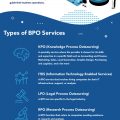In today’s swiftly changing business environment, businesses are under increasing pressure to stay innovative and competitive and adjust to shifting technological trends. As a result, many firms are thinking about outsourcing their IT services to specialized suppliers to gain specialist expertise, cut expenses, and streamline operations. However, outsourcing IT services has benefits and drawbacks.
Pros of Outsourcing IT Services
- Cost Savings
Outsourcing IT services can save businesses a lot of money. Companies can avoid the costs of employing and training internal IT staff, buying and maintaining pricey gear and software, and overseeing infrastructure updates and upkeep by outsourcing IT activities to specialist vendors. Businesses can also gain from economies of scale and flexible pricing models through outsourcing, allowing them to pay just for the services they require at the time they require them.
- Access to Specialized Expertise
IT service providers frequently employ teams of highly qualified experts with experience in a variety of technical fields, such as software development, network infrastructure, cybersecurity, and cloud computing. Businesses that outsource their IT services can obtain industry best practices and specialized knowledge that cannot be available internally. IT Services in a city near you, such as Cincinnati if you live in Ohio, can aid companies located there in adopting state-of-the-art technology, streamlining their IT infrastructure, and more skillfully handling challenging technical issues.
- Focus on Core Business Functions
Businesses can concentrate their resources and attention on strategic goals and key business processes by outsourcing IT services, as opposed to being bogged down by IT maintenance tasks and technical challenges. Organizations can drive company growth and competitive advantage by investing more time and resources in innovation, product development, and customer engagement by outsourcing typical IT tasks to outside vendors.
- Scalability and Flexibility
The flexibility to scale resources up or down in response to shifting market conditions and business requirements is one of the main advantages of outsourcing IT services. Businesses can swiftly and effectively modify their IT infrastructure and support services in response to changing needs by taking advantage of the flexible service agreements and scalability options provided by IT service providers. Because of its scalability, firms can remain flexible and adaptable to changing market conditions without expending excessive amounts of money or resources.
Cons of Outsourcing IT Services
- Loss of Control
Outsourcing IT services can result in the loss of direct control over essential business activities and data. There are dangers associated with entrusting third-party suppliers with critical IT operations and sensitive data, including as service interruptions, data breaches, and compliance problems. To protect themselves from possible hazards and guarantee accountability, businesses need to thoroughly assess the dependability and honesty of potential IT service providers and create strong contractual agreements.
- Quality and Consistency Concerns
The geographical location, service level agreements (SLAs), and provider capabilities are some of the elements that can affect the consistency and quality of IT services provided by outside vendors. Maintaining uniform service levels, communication protocols, and performance measurements across several outsourced partners and service delivery locations can provide difficulties for businesses. To ensure responsibility and uphold service quality, organizations must set explicit goals, KPIs, and service level agreements with IT service providers.
- Dependency on External Providers
Outsourcing IT services can lead to a reliance on outside sources for both technical know-how and essential business operations. Dependencies and vulnerabilities brought about by reliance on outside suppliers can affect resilience and business continuity in the event of service interruptions, disagreements over contracts, or adjustments to provider capabilities. Businesses should diversify their outsourcing agreements, keep backup plans, and retain internal expertise to support external resources as necessary in order to reduce dependency concerns.
- Communication and Cultural Differences
Collaboration and effective communication are necessary for successful outsourcing partnerships. However, while collaborating with offshore IT service providers, firms could run into issues with cultural nuances, time zone variances, and language hurdles. Misunderstandings, delays, and inefficiencies in the planning, development, and implementation of projects can result from poor communication and cultural differences. Businesses should make investments in relationship-building programs, cross-cultural training, and open lines of communication in order to overcome these obstacles and promote cooperation and understanding with outside partners.
Conclusion
When looking to optimize their technological infrastructure and operations, organizations might find both possibilities and obstacles in outsourcing IT services. In today’s digital economy, businesses can leverage external expertise, improve operational efficiency, and spur business growth by carefully weighing the benefits and drawbacks of outsourcing and forging strategic alliances with reliable IT service providers. To optimize the benefits of outsourcing while limiting potential negatives, firms must prioritize good communication and collaboration, manage risks, and retain control over vital activities.






